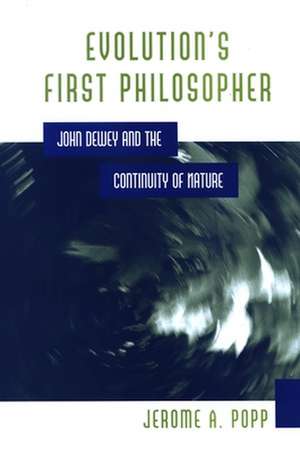Evolution's First Philosopher
en Limba Engleză Carte – 2 ian 2008
Preț: 176.37 lei
Preț vechi: 212.72 lei
-17% Nou
Puncte Express: 265
Preț estimativ în valută:
33.75€ • 35.11$ • 27.86£
33.75€ • 35.11$ • 27.86£
Comandă specială
Livrare economică 28 martie-09 aprilie
Doresc să fiu notificat când acest titlu va fi disponibil:
Se trimite...
Preluare comenzi: 021 569.72.76
Specificații
ISBN-13: 9780791469606
ISBN-10: 0791469603
Pagini: 155
Dimensiuni: 156 x 227 x 11 mm
Greutate: 0.25 kg
Editura: State University Press of New York (SUNY)
ISBN-10: 0791469603
Pagini: 155
Dimensiuni: 156 x 227 x 11 mm
Greutate: 0.25 kg
Editura: State University Press of New York (SUNY)
Notă biografică
Jerome A. Popp is Professor Emeritus at Southern Illinois University at Edwardsville and the author of Cognitive Science and Philosophy of Education: Toward a Unified Theory of Learning and Teaching and Naturalizing Philosophy of Education: John Dewey in the Postanalytic Period.
